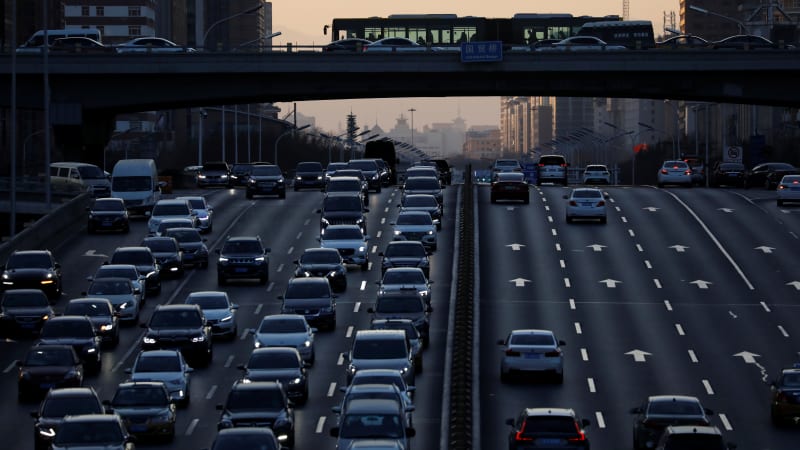
SHANGHAI/BERLIN — Car sales in China and Europe remain depressed compared to last year’s levels as semiconductor shortages and anti-pandemic measures weigh on global autos markets, data showed on Thursday.
Chinese retail car sales grew in May from April but were still down 16% from last year, according to the Chinese Passenger Car Association, which called for more government support for the industry.
In Europe, data from auto consultancy JATO showed new car sales in Europe down 20%, with plug-in vehicle sales — generally more resilient to supply chain troubles in recent months as automakers prioritized electric car production — also down by 1.4%.
Though battery-electric vehicle sales were up, the fall was driven by a 15% drop in sales of plug-in hybrid electric vehicles, whose environmental credentials are coming under growing scrutiny from European regulators.
Overall, car sales in China in the first quarter were 0.2% higher than last year, the Chinese data showed. By contrast, Europe’s year-to-date sales were down 13% by JATO’s figures, at their second lowest level since 1991.
Still, further economic data from China paints a picture of a grinding and only partial economic recovery from anti-pandemic measures.
Road freight transportation and express delivery from distribution centers last week were both stronger than a month earlier but still down sharply on last year, Nomura Global Economics said.
Chinese electric vehicle maker Xpeng is accelerating deliveries after resuming double-shift production in mid-May at its plant in the southern city Zhaoqing, the chairman of the company, He Xiaopeng, told analysts this week.
Tesla also added a second shift at its Shanghai plant on Thursday, heading towards making 2,600 cars daily, according to a person familiar with the matter.
Tesla did not immediately reply to a request for comment.
(Reporting by Zhang Yan and Brenda Goh; Victoria Waldersee in Berlin; Editing by Muralikumar Anantharaman, Bradley Perrett and David Evans)
Related video:
